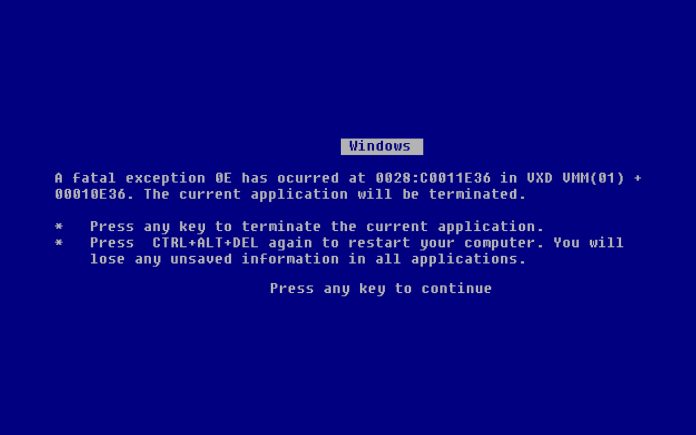“This is nothing short of a crisis” says Chris Dimitriadis, chief global strategy officer at ISACA, as major global Microsoft outage causes widespread disruption across multiple sectors, grounding planes, delaying trains, and impacting healthcare services
A global Microsoft outage has caused widespread disruptions across various sectors, impacting banks, telecommunications companies, media broadcasters, and supermarkets.
The issue primarily affects Windows PCs and is linked to problems with cybersecurity firm Crowdstrike and Microsoft.
In a conversation with SkyNews, Chris Dimitriadis, chief global strategy officer at ISACA, said, “When one service provider in the digital supply chain is affected, the whole chain can break, causing large-scale outages.”
Potential causes for international computer crashes
The issue appears to be related to a faulty update at cyber security company CrowdStrike. That appears to have been installed overnight – leaving computers unable to turn on properly afterwards.
CrowdStrike has said it is “aware of reports of crashes on Windows… relating to the Falcon sensor.” Falcon is a piece of software that monitors computers and watches for anyone trying to break into them.
Falcon is what is known as an Endpoint Detection and Response (EDR) platform, which monitors the computers that it is installed on to detect intrusions – hacks – and respond to them.
Crowdstrike’s Falcon sensor software is reportedly causing Microsoft Windows to crash and display the infamous “blue screen of death.”
An alert from Crowdstrike to its clients indicated that their software was responsible for the crashes, while Microsoft acknowledged the “lingering impact” on its 365 applications and services, which remain in a “degraded state.”
What has been affected by the Microsoft Outage?
The outage has affected Windows PCs globally, as well as disruptions affecting international banks, flights, hospitals, and numerous other sectors.
Impacted sectors:
- Airlines:
- Major airlines in the US, such as American Airlines, Delta Airlines, and United Airlines, and airports in Germany, Amsterdam, and Spain, have faced groundings and delays.
- Telecommunications and media:
- Numerous telecommunications companies have reported service disruptions. TV and radio broadcasters, including Sky News, have been affected, leading to interruptions in service.
- Retail:
- Supermarkets and other retailers have experienced significant IT challenges.
- Transportation:
- Train services, particularly in the UK, have been disrupted. Southern, Thameslink, Gatwick Express, and Great Northern services have been canceled due to the inability to access driver diagrams and other key systems.
- Healthcare:
- Major GP offices have reported disruptions with prescription systems and online healthcare data.
The dangerous effects of an IT outage on the healthcare sector
The outage has extended to GP surgeries across the UK, which are currently unable to access patient records, book appointments, or give out prescriptions.
This could be catastrophic for the NHS, which is already experiencing an overwhelming number of patients on a day to day basis.
NHS England reported that the IT outage is disrupting most GP practices, though there is no known impact on emergency services.
A global response and ongoing developments
Users across the globe, including India, the United States and New Zealand, have reported issues.
In Australia, the National Security Coordinator acknowledged the large-scale technical outage but indicated there was no information to suggest a cybersecurity incident.
Both Microsoft and Crowdstrike are actively working to resolve the issues. Microsoft is addressing the degraded state of its 365 applications, while Crowdstrike has issued an automated message acknowledging the problem.
The situation continues to evolve, with businesses and services around the world bracing for ongoing disruptions.
The risks of centralised services
“The global IT outage, apparently triggered by a problematic CrowdStrike update, once again highlights the risks of relying heavily on centralised services”, explains Matthew Hodgson, CEO & Co-Founder of the end-to-end encrypted messaging platform Element.
“This outage serves as a wake-up call for organisations to evaluate their IT strategies and disaster recovery plans. Investing in robust, decentralised, heterogeneous systems not only improves operational continuity but also strengthens overall security against unforeseen failures and cyber threats.”











